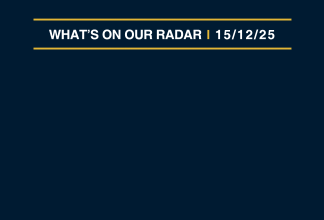What is the January Effect?
Written by The Inspired Investor team
Published on January 2, 2018
minute read
Share:
Last updated December 2023
At the start of every calendar year, investors — some still full from turkey leftovers or New Year's Eve champagne — often eagerly anticipate a rise in stock prices.
That's largely due to what's known as the "January Effect." It's a term used to describe an expected seasonal increase in stock prices at the beginning of the calendar year. The phenomenon, which helps shed light on the cyclicality or seasonality of investment habits, has been linked to an increase in buying after the so-called December decline.
How does it work?
While some of us think of December as an uplifting time — perhaps hunting for presents to place under a perfectly decorated tree or frying savoury potato latkes in a liberal amount of oil — markets often have other ideas.
At the end of the year, stock prices can sometimes drop as some investors look to limit their tax bills by selling off some of their investments. This sell-off can then become a stock rally in January as the year resets and investors, sometimes flush with year-end bonuses or perhaps a well-intentioned financial resolution, decide to purchase anew.
Investment banker Sidney B. Wachtel is said to have been the first to highlight this calendar-based phenomenon in 1942, when he examined stock prices going back to 1925 and found that certain small stocks outperformed the market in January. But over time, this effect is believed to have become less significant. While one study that analyzed data through the mid-70s found that the average return for stocks in January was five times that of any other month, more recent studies have found a smaller impact.
What does it mean for me?
While the January Effect might seem for some like an annual opportunity to sell high in the New Year, a Reuters article in 2017 noted that a Goldman Sachs analysis of returns since 1999 found that the January Effect had faded compared to periods going back to 1974. But some suggest there is a strong psychological component that still drives a January buying spree: Many people believe that the new year is good time to start something — including making changes to their investment portfolio. Still, any decisions to buy or sell are best backed by research, a solid understanding of your investing style and account types that are right for you, and any related tax implications for specific holdings.
The takeaway?
This particular phenomenon is a good reminder that investors should be mindful that markets don't always perform the way one might expect — they can be subject to prevailing trends and cycles, economic and political influences, for example. That also means the old investing adage, "As January goes, so goes the year," might just need to be taken with a grain of salt.
The information provided in this article is for general purposes only and does not constitute personal financial advice. Please consult with your own professional advisor to discuss your specific financial and tax needs.
RBC Direct Investing Inc. and Royal Bank of Canada are separate corporate entities which are affiliated. RBC Direct Investing Inc. is a wholly owned subsidiary of Royal Bank of Canada and is a Member of the Canadian Investment Regulatory Organization and the Canadian Investor Protection Fund. Royal Bank of Canada and certain of its issuers are related to RBC Direct Investing Inc. RBC Direct Investing Inc. does not provide investment advice or recommendations regarding the purchase or sale of any securities. Investors are responsible for their own investment decisions. RBC Direct Investing is a business name used by RBC Direct Investing Inc. ® / ™ Trademark(s) of Royal Bank of Canada. RBC and Royal Bank are registered trademarks of Royal Bank of Canada. Used under licence.
© Royal Bank of Canada 2025.
Any information, opinions or views provided in this document, including hyperlinks to the RBC Direct Investing Inc. website or the websites of its affiliates or third parties, are for your general information only, and are not intended to provide legal, investment, financial, accounting, tax or other professional advice. While information presented is believed to be factual and current, its accuracy is not guaranteed and it should not be regarded as a complete analysis of the subjects discussed. All expressions of opinion reflect the judgment of the author(s) as of the date of publication and are subject to change. No endorsement of any third parties or their advice, opinions, information, products or services is expressly given or implied by RBC Direct Investing Inc. or its affiliates. You should consult with your advisor before taking any action based upon the information contained in this document.
Furthermore, the products, services and securities referred to in this publication are only available in Canada and other jurisdictions where they may be legally offered for sale. Information available on the RBC Direct Investing website is intended for access by residents of Canada only, and should not be accessed from any jurisdiction outside Canada.
Explore More

Economic Outlook: Uncertainty is Here to Stay, So What's Next?
Takeaways from the Economic Club of Canada’s Annual Event
minute read

3 things: Week of December 15
What the Inspired Investor team is watching this week
minute read

Year in Review: Tariffs, Tech, Rates and More
Looking back at some major stories of 2025, plus lessons investors can take into the new year
minute read
Inspired Investor brings you personal stories, timely information and expert insights to empower your investment decisions. Visit About Us to find out more.







